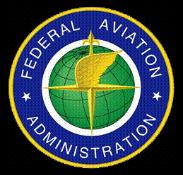
- General Information
- Vision Requirements
- Lasik

| General Information Classes of Medical Certificates An applicant may apply and be granted any class of airman medical certificate as long as the applicant meets the required medical standards for that class of medical certificate. However, an applicant must have the appropriate class of medical certificate for the flying duties the airman intends to exercise. For example, an applicant who exercises the privileges of an airline transport pilot (ATP) certificate must hold a first-class medical certificate. That same pilot when holding only a third-class medical certificate may only exercise flying activities of a private pilot certificate. Finally, an applicant need not hold an ATP airman certificate to be eligible for a first-class medical certificate. Listed below are the three classes of airman medical certificates, identifying the categories of airmen (i.e, pilot) certificates applicable to each class.
|
| LASIK and other forms of vision corrective surgery have helped many pilots in the military and civilian world, but there are risks and potentially adverse effects that could be incompatible with flying duties. These include:
The FAA expects that a pilot will not resume piloting aircraft until his or her own treating health care professional (usually the ophthalmologist who did the procedure) determines:
If these determinations are favorable and if otherwise qualified, the pilot may immediately resume piloting but must ensure that:
The airman may continue flight duties unless informed otherwise by the FAA or another disqualifying condition occurs. Exam- Guide/Eye/Eyes-Procedures-See Detailed FAA Instructions about LASIK... Click on the FAA emblem to go to the FAA website |
| Frequently Asked Questions |
| How often do I need an EKG? For First Class Airman Medical Certification: An EKG is required at age 35 and on an annual basis beginning at age 40. |
Bring any health documentation at the time of your visit Bring a list of any medications you are currently taking Bring glasses if you use them Bring a list of any medical visits including the dates during the last three years |
| Medications and Flying There are numerous conditions that require the chronic use of medications that do not compromise aviation safety and, therefore, are permissible. Airmen who develop short-term, self-limited avoid performing aviation duties while medications are used. A consultation with your AME can determine whether you can continue flying on certain medications. |
